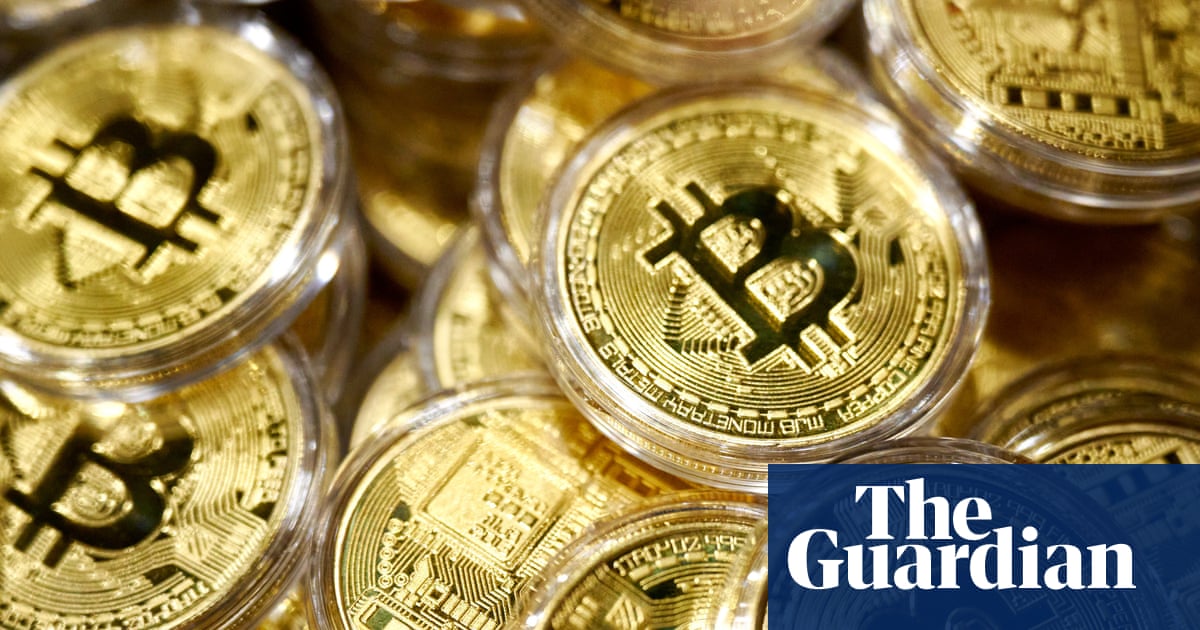Cryptocurrency Market Faces Tremors Amid Fears of a Tech Bubble
In recent weeks, the cryptocurrency market has experienced significant turmoil, with over $1 trillion (£760 billion) erased from its total value. This sharp decline has left investors rattled, fueled by rising concerns about a potential tech bubble and diminishing expectations surrounding a possible rate cut by the US Federal Reserve.
A Dismal Decline
According to data from CoinGecko, which tracks over 18,500 cryptocurrencies, the market has plummeted by around 25% since reaching a peak in early October. Bitcoin, the flagship cryptocurrency, has not been immune to this downturn, suffering a 27% decline to settle at $91,212—the lowest it has been since April. The falling values underscore a broader skepticism permeating the digital coins space, highlighting the fragility of investor confidence amid swirling uncertainties.
Broader Market Concerns
This decline in the cryptocurrency market has reverberated through traditional financial markets, igniting fears of a larger tech bubble. Notably, Sundar Pichai, the CEO of Alphabet, the parent company of Google, has voiced that “no company” will be spared should a bubble burst. His remarks come during an interview where he referenced an “irrationality” overtaking the booming artificial intelligence sector.
The UK’s blue-chip FTSE 100 index registered a 1.3% drop on a single day, marking it as one of its worst-performing days since April. Meanwhile, across the pond, major US indices—Dow Jones, Nasdaq, and S&P 500—each declined by approximately 1%. In Asia, the situation appeared no better, with Japan’s Nikkei 225 index plummeting by 3.2%, while Hong Kong’s Hang Seng index fell by 1.7%.
The AI Bubble Warning
Pichai isn’t alone in his apprehension; Daniel Pinto, vice chairman of JP Morgan Chase, has echoed similar sentiments. He remarked at the Bloomberg Africa Business Summit that the striking valuations in the AI sector are ripe for correction—a reassessment that could extend across various market segments, including the S&P 500 and broader industries.
Sebastian Siemiatkowski, CEO of fintech giant Klarna, also shared his concerns, especially regarding hefty investments in computing infrastructure. He stated, “I think [OpenAI] can be very successful as a company but I’m very nervous about the size of these investments in these data centers.” This apprehension indicates a growing caution among industry leaders regarding the sustainability of soaring valuations, particularly for companies like Nvidia, which recently became the first to reach a market value of $4 trillion.
The Ripple Effects
Siemiatkowski contended that the current trend could have far-reaching effects, warning that index fund allocations may inadvertently tie pension funds to high-risk investments. “You can say, ‘I disagree with Nvidia’s valuation,’ but the truth is your pension right now is going into that theory that it is a good investment,” he cautioned. This commentary reflects an unsettling reality, where market valuations could significantly impact everyday investors’ retirement savings.
Surveys conducted by the Bank of America revealed that a striking 45% of fund managers perceive the emerging AI bubble as one of the most concerning risks present in the stock market today. This consensus underscores a waxing fear that a bubble could burst, potentially leading to widespread financial consequences.
Precious Metals in Decline
Interestingly, the turmoil isn’t exclusive to tech and cryptocurrency. Gold, often regarded as a safe haven asset, is also witnessing a decline in price. As of Tuesday morning, the spot price of gold slid by 0.3% to $4,033.29 an ounce, marking its lowest point in a week. This price drop aligns with reduced expectations that the Federal Reserve will soon cut interest rates, as higher rates typically diminish the appeal of gold due to its lack of yield.
Despite the immediate downward trend, analysts like Giovanni Staunovo of UBS suggest that gold prices may stabilize and recover as expectations for future rate cuts remain, alongside robust central bank interest in diversifying into gold assets.
Summary of Market Sentiments
As a wave of uncertainty continues to wash over financial markets, the interplay between cryptocurrencies, stock valuations, and traditional assets like gold highlights the fragility of current economic sentiments. Investors would do well to remain vigilant as they navigate this turbulent period, aware that rapid changes can occur in the blink of an eye. The potential for a tech bubble to burst is not just a distant threat, but a pressing concern that warrants cautious optimism and thorough analysis in these dynamic times.



